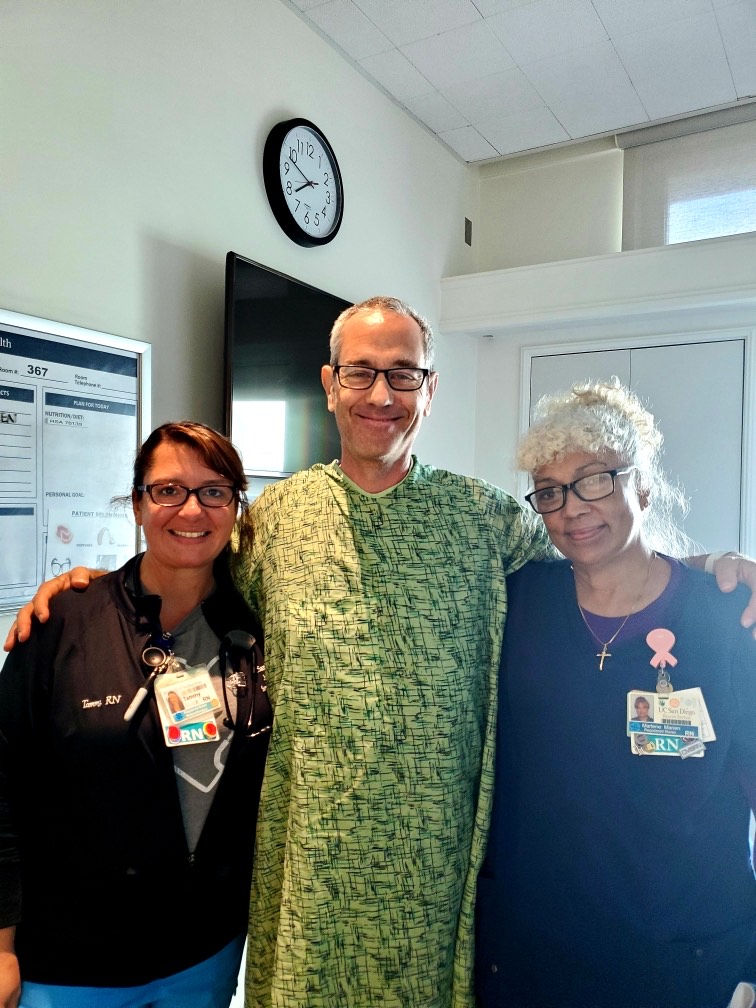In Part 1 of this blog series about my recent surgery, I discussed how gaining a different perspective allowed me to change my mindset. Part 2 will focus on some lessons learned about the patient experience, and things we can change in the system.

Lesson 1 - Pre-Op is Complicated
I had no less than 6 pre-op appointments in preparation for surgery. My primary doctor was very helpful coordinating an MRI which demonstrated moderate lumbar spinal canal stenosis, moderate and severe foraminal stenosis at multiple levels, and disc extrusion at L5-S1 with obliteration of the right foramina. I saw the spine surgeon and his resident for examination and discussion of his recommendations. I then needed to get a pre-op physical from the primary doctor, labs, a CT scan, a pre-op anesthesia visit, a spine PA pre-op, and a drive-up Covid test all while juggling my on-call days. I even decided to show up an hour earlier than directed on the day of surgery to donate time for a research study on spine muscle. (I donated a muscle biopsy as well later in surgery.)
I know that most of my patients are not having “elective” surgery, but this experience still made me think about the stresses and/or burdens our system places on the patient and their families.
What if we could make this less burdensome to patients while maintaining quality and safety?
Lesson 2 - Customer Service Matters
Each phase of the process can impact the patient experience. As a surgeon, I was aware of many things that would happen, but there was still a significant amount of uncertainty as a patient. Where exactly was I supposed to check in? What would happen next? Everyone that I encountered was kind and helpful. The pre-op nurse(s) made me feel comfortable, kept me filled in on what would happen next, and prepared me mentally for surgery. The nurse reviewed appropriate information, checked vitals, started IV, and prepared me physically for surgery.
My time in the post-anesthesia care unit and on the floor was a similar blend of helping me get what I needed physically with medications and compassion for what I needed to get through the experience emotionally. The original plan was for my surgery to be outpatient. Unfortunately, one of my less noticeable health issues led me to experience a profound amount of dizziness in recovery. With patience on the part of the care team, I was able to come to grips with telling my wife and son that their trip to pick me up from the hospital was a waste of their time. Although I suspect that these nurses would do this for many patients, I felt like the nurses went out of their way to take care of me even during shift change that evening, and when I was feeling much less dizzy and requested an early discharge the next morning.
What if most everyone in healthcare, including insurance administrators and government regulators recognized that customer service matters almost as much as quality, safety, and value?
Lesson 3 - Gratitude Goes a Long Way
Most of us are grateful for the opportunity to care for other human beings. Most of us got into medicine because it appealed to us in some way. However, there are always phases in a day, a week, or a career when we experience exhaustion, compassion fatigue, distress, other frustrations, or moral injuries. No matter how difficult or stressful it may be, patients have the power to boost the spirit of their caregivers with simple signs of gratitude and kindness.
While these please and thank yous may not have given me that extra ice cream or longer walk in the halls that evening, it felt like my attitude and experience was lifted up by appreciating the care that I was receiving. I shared it with as many people as I could, including those cleaning my room and delivering the meals.
Gratitude can come before, during, or after the care provided. Look at me now. Some of these nurses deserved to have their “superiors” knowing how great their care was, and I am only getting around to it several weeks later. As I was receiving care from the academic center where I used to work, I ran into a former resident, now a successful joint surgeon. He was very kind to stop to chat with me. My former Chairman and boss, now the Dean of the School of Medicine, was also doing some spine surgery that day. He saw my name on the surgery schedule and paid me a very respectful visit pre-op. As I left my academic job in one of my phases of burnout, I likely left without expressing gratitude for hiring me and providing me the opportunity to grow some wings. Better late than never. Thanks Steve.
What if there was a way to remind patients of the importance of gratitude and kindness without disrespecting them or the healthcare professionals providing their care?
These are lessons learned from a single life experience that have made my life even better.
What are some positive lessons that you have learned from a life experience?
Hope you will catch Part 3 of My Personal Experience with Surgery to learn what I think is the single biggest lesson in the experience thus far.
